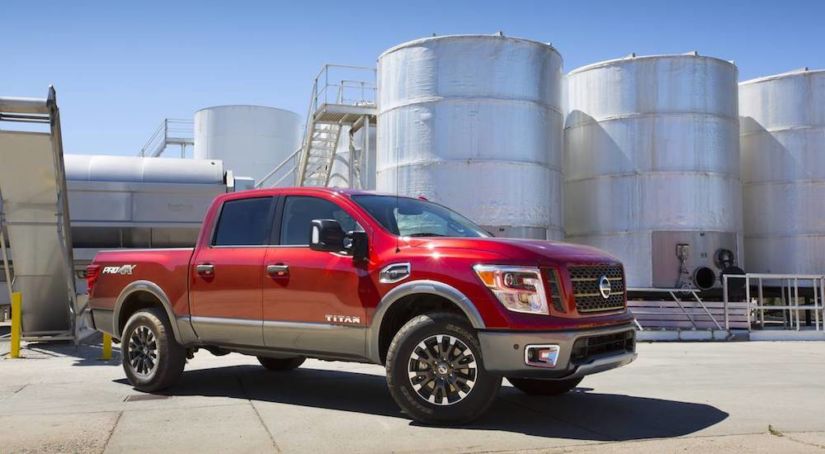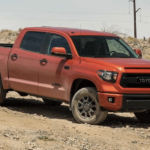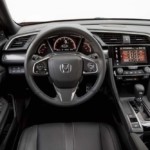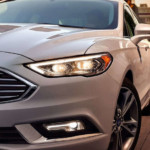It’s hard to believe that we just celebrated the 100th anniversary of the first Ford truck to roll off the assembly line. While the Model TT may not have been the first “truck” per se, it was the first time that one had been built, as opposed to resulting from the modification of an existing car chassis. It’s hard to imagine a time devoid of truck production, and with each day it becomes easier to forget that at one point, there were only Ford trucks.
Even the ‘Detroit 3’ have sacrificed market share to imports such as Toyota, Honda, and Nissan. And with the evolution of the American truck-buyer (which now includes men, women, and families alike) the diversity of offerings has helped trucks become one of the leading segments in terms of sales.
But how does a relative upstart like the Nissan Titan measure up against Ford’s oldest offerings? Despite the Titan showing the quickest growth in market share, Ford’s F-Series remain the best-selling vehicle of the last four decades. Needless to say, this David & Goliath story will be an interesting one.
With that in mind, let’s take a closer look at the 2017 Nissan Titan vs 2017 Ford F-150 starting with price. While the Titan also offers the beefier gas / diesel option of the XD, we’re going to base this comparison on the standard model priced to start at $29,580 MSRP. The base model of the Regular Cab F-150 is priced competitively, starting at $27,110 MSRP.
Performance and Handling
2017 saw the return of the Nissan Titan after a year-absence; and with its return came a full redesign with one of the most notable changes being a new engine. Now powered by a 5.6-liter V8 (paired to a seven-speed automatic transmission) the Titan delivers 390 horsepower and 394 lbs-ft of torque, causing even more people to sit up and take notice.
In terms of fuel economy, you can expect an estimated 18 mpg combined, whether you opt for RQD or 4WD (17 mpg with the Pro-4X variant). As for towing capacity, the Titan can pull more than 9,200 LBS with a max payload of approx. 1,600 LBS; although the XD model is best suited for more rigorous towing.
Combining nimble handling with responsive braking, the Titan is a confident and smooth ride. And its growing popularity is a testament to the strength of its overall design and execution. But the Ford F-Series sets the gold standard…so how does the Titan measure up against the F-150 lineup?
First, there are a number of engine configurations available for the F-150. Paired to a six-speed automatic transmission you can opt for the 3.5-liter V6, turbocharged 2.7-liter V6, or 5.0-liter V8. There is also the option of a 3.5-liter V6 paired to a 10-speed automatic transmission. The wealth of options goes to show you how well Ford understands its diverse customer base. That said, let’s aim for the most apples-to-apples comparison and evaluate the F-150 based on the 3.5-liter V6 that comes standard in the (base) XL trim. Delivering 282 horsepower and 253 lbs-ft of torque, you can expect a combined 21 mpg. And no one is surprised that a properly-equipped F-150 offers better towing capacity, although the turbocharged engines are better suited for such tasks.
While it’s worth reiterating the range of engine configurations available on the Ford F-150, comparison of the base offerings for each put the Titan at a surprising lead in terms of engine specs and power. Fuel economy suffers slightly as a result, but that’s an expected trade-off. (1:0 Nissan)
Exterior Design
When we talk design, the conversation always gets a bit subjective. While its simply my opinion, one of the strongest attributes of the Titan (since ‘Day One’) has been its outside-the-box aesthetic. From the front-end back, the Titan simply looked different than the more traditional stylings presented by domestic manufacturers.
And while those manufacturers (Ford included) have evolved their own look, their longevity works against them to some degree. A nice truck will always turn heads, but when your eye catches something ‘different’ it holds your attention longer. With that in mind, we’re going to chalk up another point for the Titan. (2:0 Nissan)
Interior Design
Depending on the cab configuration and trim level selected, both the Titan and F-150 provide a wealth of enhancements available to customize the cabin experience. But when we evaluate both on a more ‘bare-bones’ level, they’re both just really strong designs. Neither lacks space (although the F-150 is hard to beat in that regard), and the overall layouts are clean, modern, and welcoming. From gauge cluster to controls, both trucks seem to be guided by function over form, but it’s neither disconcerting or unwelcome. The bottom-line is that it’s hard to pick a winner here, so we’re just going to call it a tie. (3:1 Nissan)
Technology
As has become an expectation, the Titan is Bluetooth-enabled. That said, its offering of both phone and music streaming at a base trim level (when many just offer phone) is worth noting. Its infotainment system is designed around a 5-inch display screen and six-speaker audio system (wth CD, USB, and auxiliary inputs). If you choose to jump trim levels, you can expect an upgrade to a 7-inch touchscreen, satellite radio, and 12-speaker sound system. Build further with a remote engine start, front and rear parking sensors, and enhance the Titan’s utility with a 120-volt outlet. The options are plentiful.
The F-150 is fairly basic at the base trim level, with a 4.2-inch display, four speaker audio system with an auxiliary jack and not much else. There is the optional upgrade of a 101A package, which integrates Bluetooth, voice controls, smartphone syncing, USB and CD Player, but it is surprising that most of those amenities don’t come standard.
For that reason, Nissan certainly has the upper hand on available technology (4:1 Nissan)
Results
While this comparison may favor the Nissan Titan overall, it does nothing to diminish the strength of the F-150. The F-Series remains the benchmark for nearly all truck manufacturing, and probably always will. It’s simply worth recognizing the strength of Nissan’s upstart.



